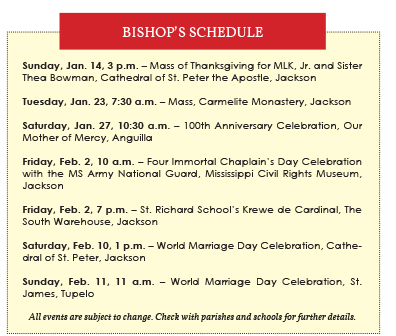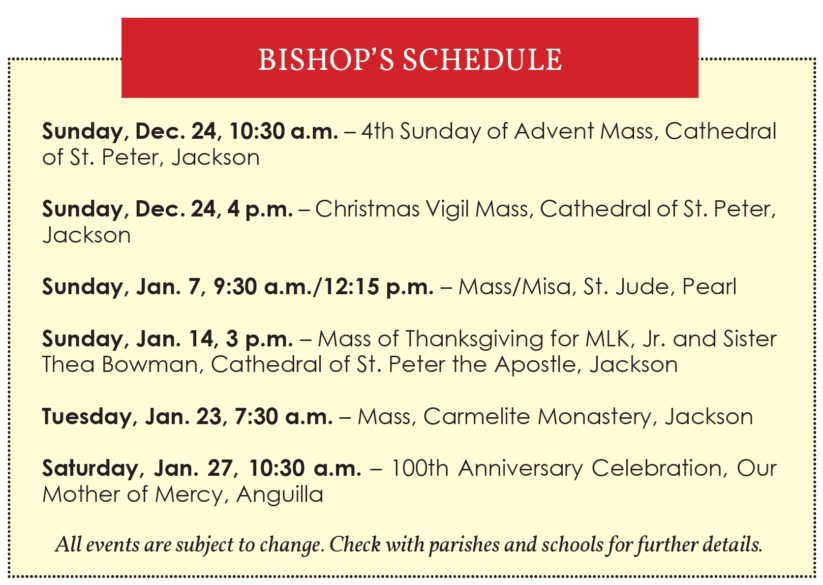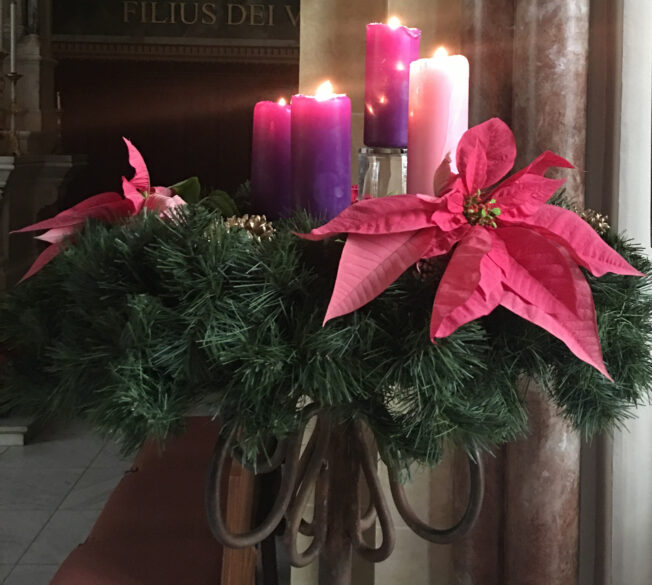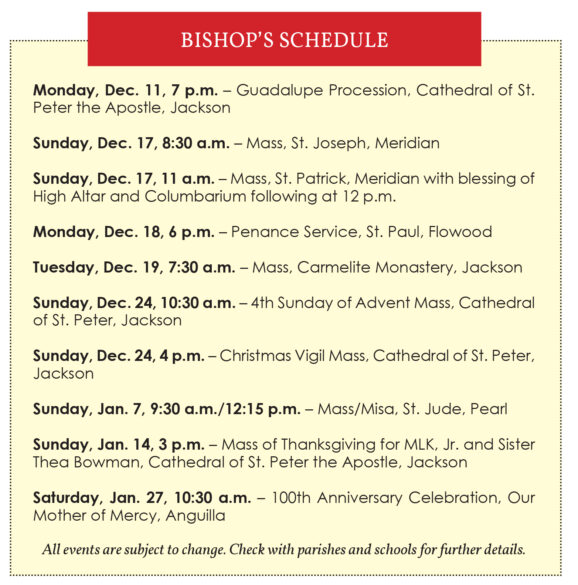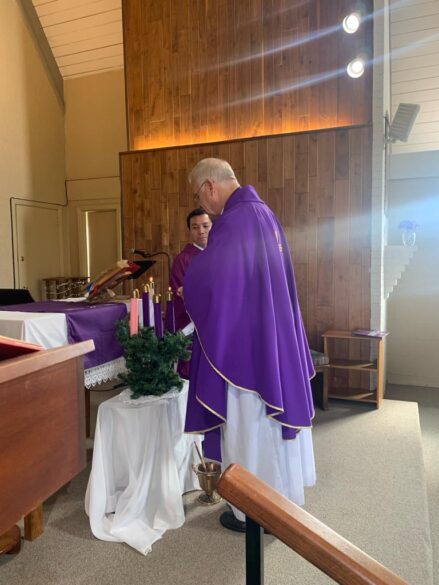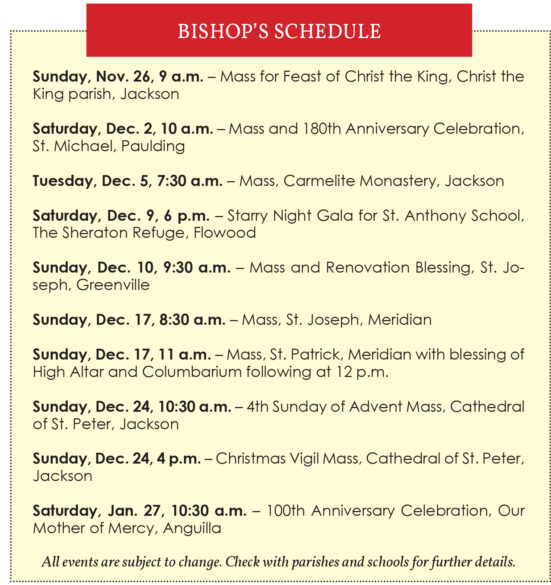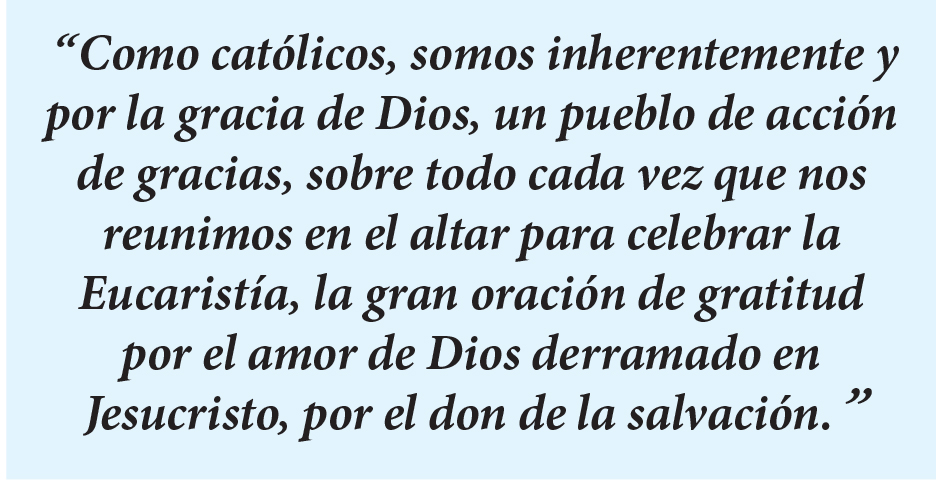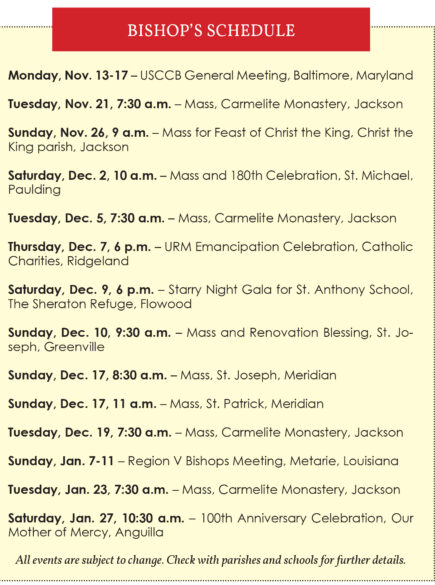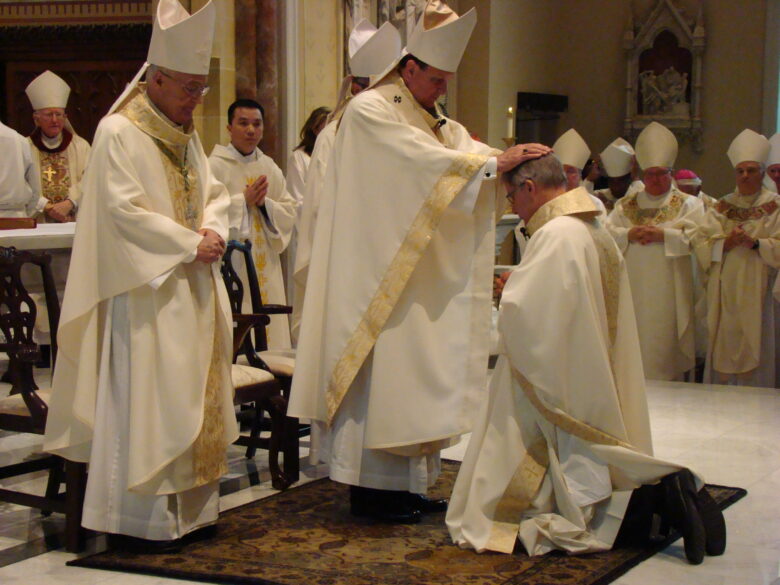
By Bishop Joseph R. Kopacz, D.D.
Just shy of 47 years a priest and now 10 years as the 11th Bishop of Jackson, I give thanks to the great High Priest, Jesus Christ for the gift of serving Him, His body the church, and the Kingdom of God in this world.
The Lord pronounced that “I have come that they may have life, and that they may have it more abundantly.” (John 10:10) This promise has been fulfilled ten-fold in my life. Indeed, abundance is the stamp of priesthood and episcopal ministry. Whether blessings or burdens, for me iIt has been a life of purpose especially over the unanticipated bends in the road.
A few days following my consecration and installation on Feb. 6, 2014, I treasured the opportunity to fly from Madison to St. Mary’s Basilica in Natchez, to St. Joseph in Greenville, to St. James in Tupelo, and to St. Joseph in Starkville, and in the process to have my first encounters with the faithful. During those 12 hours, 7 a.m. to 7 p.m., from an ariel view of 3,000 feet a large swath of the Diocese of Jackson stretched out before me, a grand view that remains vivid to this day. Play it forward, and 10 years and 300,000 miles later, via modern day horsepower, have given me boots on the ground experience forming a deep bond with the Diocese of Jackson and the State of Mississippi. Of course, it’s not a matter of miles, but of mission and ministries and the Catholic people who make up the communities of faith throughout 65 counties.
As my anniversary approached there were two events a week ago that afforded me the opportunity to deepen the understanding that the gift I have received can only be graciously lived in turn. Unexpectedly, Bishop Mario Dorsonville died from health complications after serving only 10 months as the Ordinary of Houma-Thibodaux. At his Mass of Christian burial, the shock and sadness of those in the congregation were plain to see, and at moments I could not help but be self-referential considering the timeframe of his ten months and my ten years. If he were blessed to serve ten years, he would have been my age looking back in gratitude over a decade of service in the Bayou of Louisiana. We know not the day nor the hour, only that each day is the moment at hand, and the weeks, months and years follow rhythmically under the wings of Divine Providence.
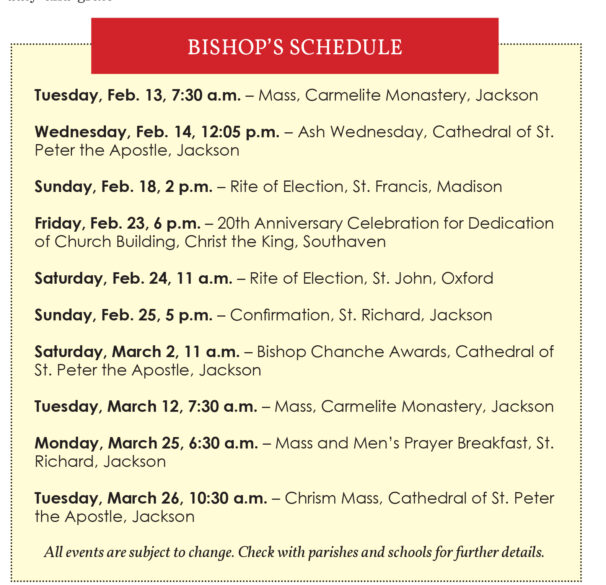
The following day, on Friday of last week I had a visitor from Northeastern Pennsylvania, who was on his way to begin a new chapter of active duty in the Army Corps Band at Fort Hood, Texas. Liam and his brother Luke, my godson, served at my Mass of consecration and installation as early adolescents. Now they are 23 and their adult lives are unfolding with energy and enthusiasm.
Over breakfast at Broad Street Bakery, he just happened to mention that he could retire after 20 years at age 42, and then floated the question – “by the way, how old will you be at retirement?” That’s a number he couldn’t even compute. As he savored his grits it struck me that over ten years a number of folks in my life have left this world, and others have come of age. And yes Virginia, there is a Santa Claus and yes, someday I will retire. But meanwhile I am still on active duty and grateful for the energy and motivation that propel me forward each day. Another way of naming this is God’s grace in varied and splendid ways, especially implored in the Eucharistic prayer at each Mass when I am lifted up by name.
Finally, I give thanks for the countless collaborators in the ministry – ordained, religious, and lay – whose love for the Lord Jesus and the church, whose generosity and Gospel commitment are a fountain of inspiration every day. Let the new decade begin and may the bends in the road ahead continue the adventure in that sacred space between time and eternity. Ad multos anos!


